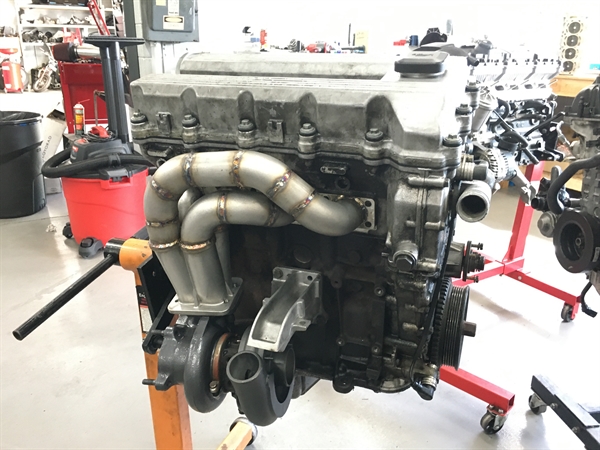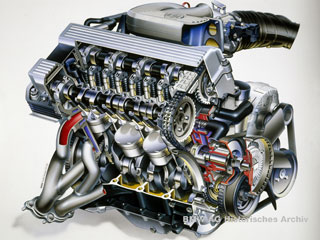BMW 318ti Evaluation: What Makes This Design Stand Apart
BMW 318ti Evaluation: What Makes This Design Stand Apart
Blog Article
Important Considerations for Choosing the very best Engine for Your Requirements
In the world of picking the excellent engine to satisfy your demands, a number of critical aspects need meticulous factor to consider to ensure optimal efficiency and efficiency. From the nuanced equilibrium between power and performance to the often-overlooked elements of maintenance and service requirements, each facet plays a pivotal role in figuring out the most suitable engine for your specific needs.
Power and Efficiency
When reviewing engines for optimal performance, it is vital to prioritize both power result and performance. Power result determines the capability of an engine to produce energy, which straight influences its performance. A high power output is essential for requiring tasks such as heavy-duty applications or high-speed demands. It makes certain that the engine can deal with the work effectively and effectively. Power alone is not sufficient; performance plays a considerable role in establishing the total efficiency of an engine. Efficiency describes just how well the engine converts fuel right into useful energy. A a lot more effective engine will supply better gas mileage, lower exhausts, and reduced operating expense. Striking the right equilibrium in between power result and performance is key to picking an engine that fulfills your particular requirements. When making this decision, it is vital to take into consideration aspects such as the planned usage of the engine, environmental influence, and long-term expense implications. By carefully assessing both power and efficiency, you can select an engine that provides optimum performance and fulfills your requirements efficiently.
Fuel Performance and Economic Climate
In the world of engine option, the consideration of gas performance and economy holds critical importance. Gas performance refers to the engine's capability to convert gas into power with minimal waste, directly affecting operating expenses and environmental sustainability. bmw 318ti. When picking an engine, reviewing its fuel economic climate is vital to figure out long-term cost savings and environmental effect. Engines with greater fuel effectiveness not just minimize fuel expenses however likewise reduce carbon exhausts, contributing to a greener operation.

Compatibility and Application
Thinking about the gas efficiency and economic climate of an engine, the following essential facet to address is its compatibility and application within specific functional contexts. Compatibility refers to exactly how well the engine incorporates with the overall system or devices it powers.
In addition, the application of the engine is equally crucial. Various engines are designed for certain objectives, whether it be industrial machinery, marine visit the website vessels, cars, or power generators. Recognizing the intended application permits the choice of an engine that can supply the needed power output, torque, and operational qualities. A high-revving engine developed for efficiency vehicles would certainly not be appropriate for durable building and construction tools that calls for high torque at reduced rates.
Maintenance and Solution Requirements
Maintenance and solution needs play a vital duty in guaranteeing the long life and optimum performance of an engine. Routine upkeep is important to avoid malfunctions, expand the lifespan of the engine, and maintain its effectiveness. When selecting an engine, it is vital to consider the producer's suggested upkeep timetable and the availability of service centers or certified professionals.
Factors such as the frequency of oil modifications, filter substitutes, and overall evaluations can significantly impact the engine's performance. Some engines may need even more regular maintenance based upon their style and usage, while others may have longer intervals between maintenance checks. It is vital to comply with these service requirements to avoid try this out costly repair work and unforeseen downtime.

Cost and Spending Plan Considerations
Spending plan restraints usually play a substantial function in the decision-making process when picking an engine for a certain application. When thinking about the cost and spending plan implications of picking an engine, it is vital to examine not just the preliminary purchase rate however also the lasting expenditures connected with maintenance, fuel intake, and prospective upgrades or repair services. It is important to strike an equilibrium between the upfront cost of the engine and its overall lifecycle costs to ensure that the picked engine stays monetarily lasting throughout its functional life-span.
Factors such as fuel resilience, reliability, and performance can directly impact the complete price of ownership of an engine. While a more expensive engine might have higher upfront prices, it might possibly result in reduced upkeep and fuel costs over time, therefore offering far better value in the lengthy run.
Conclusion

Gas effectiveness refers to the engine's capability to convert gas right into power with minimal waste, straight impacting operating costs and ecological sustainability.Variables influencing fuel effectiveness consist of engine design, combustion effectiveness, and total efficiency optimization. Additionally, choosing the proper gas kind and grade as suggested by the engine maker can better enhance efficiency and extend engine life-span.
Engines with excellent serviceability features and easily available components can lower upkeep costs and reduce the time the engine is out of operation - bmw 318ti. It is vital to strike an equilibrium between the upfront expense of the engine and its general lifecycle prices to ensure that the chosen engine stays economically sustainable throughout its functional life-span
Report this page